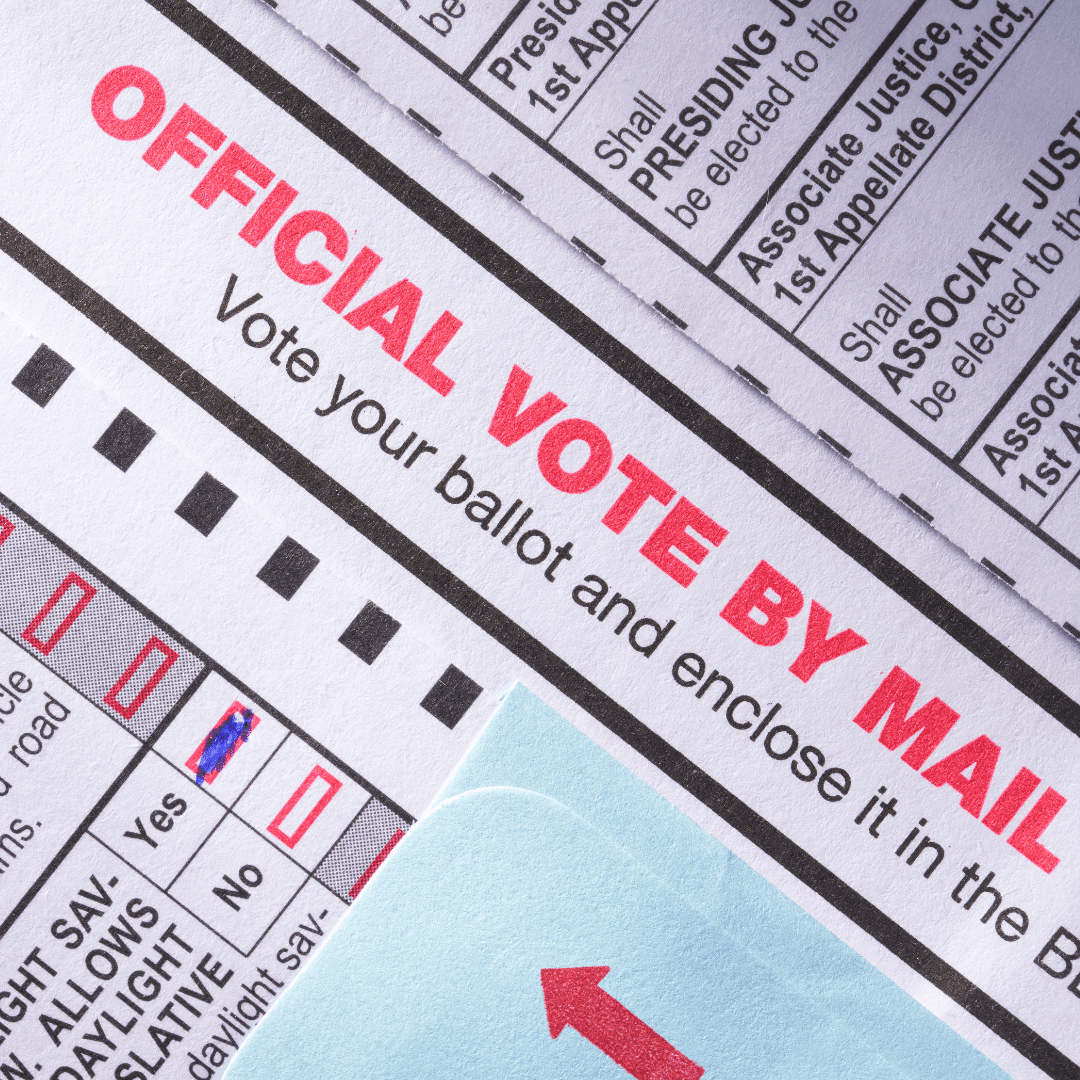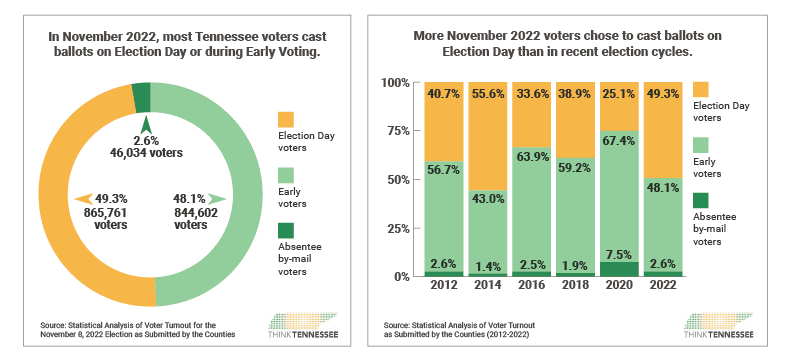NASHVILLE, TN – New policies within the Transportation Modernization Act (TMA) are promising first steps toward funding critical transportation infrastructure across the state, according to two new research briefs on electric vehicle fees and choice lanes released today by nonpartisan think tank ThinkTennessee.
In Electric Vehicles: Driving Tennessee’s Future, the authors explain the proposed new fee structure for electric vehicles and hybrids, discuss how that compares to other states across the country, and identify additional opportunities for policymakers to consider to address the infrastructure needs of today and in the future.
In Choice Lanes: The Right Choice to Manage Congestion, the think tank describes how choice lanes manage congestion, validates public-private partnerships as a proven tool, and shares best practices for implementation to maximize impact, transparency, and equity.
“The TMA is critical to our state’s infrastructure future, but our research shows that the details of implementation are just as important in achieving the desired aims of decreased congestion and additional revenue for transportation infrastructure,” said Erin Hafkenschiel, president of ThinkTennessee. “For instance, the proposed electric vehicle fees are among the highest in the country and could inadvertently disincentivize the purchase of Tennessee-made electric vehicles. Additional strategies, such as new funding sources, electric vehicle incentives, and investments in multi-modal transportation, are needed to address our state’s long-term mobility needs.”
The Tennessee Department of Transportation (TDOT) estimates that the state needs $26 billion to address congestion by 2040 but anticipates having only $500 million available per year for new construction projects, resulting in a $13.5 billion revenue gap.
An administrative priority of Governor Bill Lee, the TMA would enable Tennessee’s Department of Transportation to address critical infrastructure needs across the state with innovative tools like public-private partnerships, choice lanes, and new project-delivery models. While the Act would not increase the fuel tax, it would impose higher fees on battery electric vehicles and add new fees for hybrid and plug-in hybrid electric vehicles.
The think tank’s research comes as the Tennessee General Assembly continues to move forward the historic transportation infrastructure legislation.
Key Findings on Electric Vehicle Fees:
- In addition to federal funding, the largest source of TDOT’s revenue comes from “highway user taxes,” otherwise known as gas taxes, which have been falling in Tennessee relative to projections based on population growth. The decline is due to greater fuel efficiency, inflation and, to a lesser extent, increased adoption of electric vehicles.
- Estimated electric vehicle fees would only make up a small portion of the projected revenue loss. Electric vehicles account for a small portion of total registered vehicles in Tennessee, and as a result, for only a small portion of lower gas tax revenues.
- Moreover, the proposed electric vehicle fees would be among the highest in the country. 32 states, including Tennessee, have a battery electric vehicle fee while 18 have registration fees for hybrids, including only ten states with fees for conventional hybrids. Average fees are $127.23 for battery electric vehicles, $74.73 for plug-in hybrid electric vehicles and $56.86 for conventional hybrids. The TMA proposes adding a new $100 registration fee for both hybrid and plug-in hybrid electric vehicles and increasing the annual registration fee for battery electric vehicles to $200 (from $100), and further increasing to $274 in 2026.
- A fee more aligned with the national average, payment options, and new incentives would encourage the adoption of Tennessee-made electric vehicles while still helping to close the revenue gap. Annual electric vehicle registration fees are upfront costs, which can be challenging for working families. Alternative policies in two states help address this challenge by allowing drivers to pay the annual fee over two installments (South Carolina) and offering drivers an option to be charged according to their miles driven (Utah).
- Choice lanes (sometimes called “express lanes” or “HOT lanes” in other states) have demonstrated success at addressing traffic congestion. In Georgia, express lanes reduced rush-hour commute times by an hour and in Florida, 71% of road users shifted their commute patterns to better take advantage of express lanes.
- Choice lanes are a better solution for Tennessee than toll roads or unmanaged general-purpose lanes. Toll roads can create an inequitable burden on low-income drivers, while new unmanaged general-purpose lanes do not improve traffic congestion in the long term.
- Public-Private Partnerships (PPPs) will allow the state to benefit from private debt financing. Tennessee is one of five states that build roads on a strict pay-as-you-go basis; allowing TDOT to use PPPs to build choice lanes will provide more flexibility and funding for new projects.
- Tennessee can learn from the implementation of PPPs and choice lanes in other states. Best practices include ensuring all partners have the relevant experience and expertise required for designing and managing choice lanes, designing projects to be equitable and benefit all residents, and using choice lanes and other managed lane operational strategies like vehicle eligibility to encourage complementary congestion-reducing behaviors such as carpooling.





